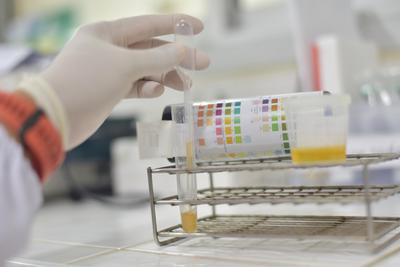Drug Test At Work
It seems every company has a drug-free workplace these days, but are they effective in achieving their stated goals? Does a simple pre-employment urine test mean a company is truly drug free?

Work drug tests have become ubiquitous in this country. What is everyone tyring to accomplish by setting up these programs, and are they effective at creating a drug-free workplace?
Do you oversee hiring of new staff at your company?
Since I deal with employment drug testing every day, I have a few insights into the question of effectiveness, and some easy-to-implement suggestions that can make your program far more effective, and save you a ton of money in the process.
First, why are you testing your staff? It's clear in the literature that drug-free employees have less accidents, less sick time, and less conflicts with other employees and/or clients. It's also clear that they steal less, oversleep less, and produce more. I am guessing that your goals include getting the best staff, and the most out of them, so naturally you want them to be drug-free. After all, you spend money on drug testing, and not just because it's required. By culling out the abusers, you get a staff that is more productive (with lower turnover), so there's actually a material ROI.
But here's the thing that shocks me every day: 99% of our company clients require pre-employment drug tests, and nothing more (other than DOT companies, which are required to do random, post-accident, and reasonable suspicion testing as well). And, we all know, a pre-employment drug test is easy to prepare for. The person simply abstains for a week and their urine is clean. I'm not talking about cheating a test. I'm talking about just avoiding drugs for a week, then going right back to it. True, hardcore addicts can't easily do this, so you're probably screening them out of your hiring process, but the rest of the drug users - the ones that take more sick time, produce less, and conflict more - you're not screening them out at all. Thus, your ROI is far less than it could be.
Fortunately, there are several simple solutions.
- Implement a random drug testing program. It's so easy - just send us a roster of your employees, update it monthly or quarterly, and tell us what percent you want to test. Even if it's only 10%, the random testing has a deterrent factor that is undeniable. Companies that do random testing have half the rate of drug use as companies that just do pre-employment.
- Implement promotion-based hair follicle testing. It makes so much sense. Hair drug tests go back 90 days. So if someone is angling for that promotion, and they know it will be contingent on a negative test, they are sure to remain clean. This keeps the up-and-comers in your organization drug-free an ongoing basis.
- Choose hair tests over urine tests. Why? They cost a little more, but hair tests have a positivity rate of double urine tests. They simply screen out more drug users, because folks need to abstain for a much longer period of time to pass a hair test. The NYPD tests hair. They know the value of a drug-free workforce. You should, too.
In conclusion, if you are performing drug tests just to satisfy a contractual or regulatory requirement, then keep on doing what your doing. But if you're smart, and you want a clean staff plus a significantly better ROI on your drug testing program, consider implementing my three simple suggestions above.
Save money, reduce absenteeism and liability, and improve morale all at the same time? It's a no brainer.
Call us to discuss your options further!




